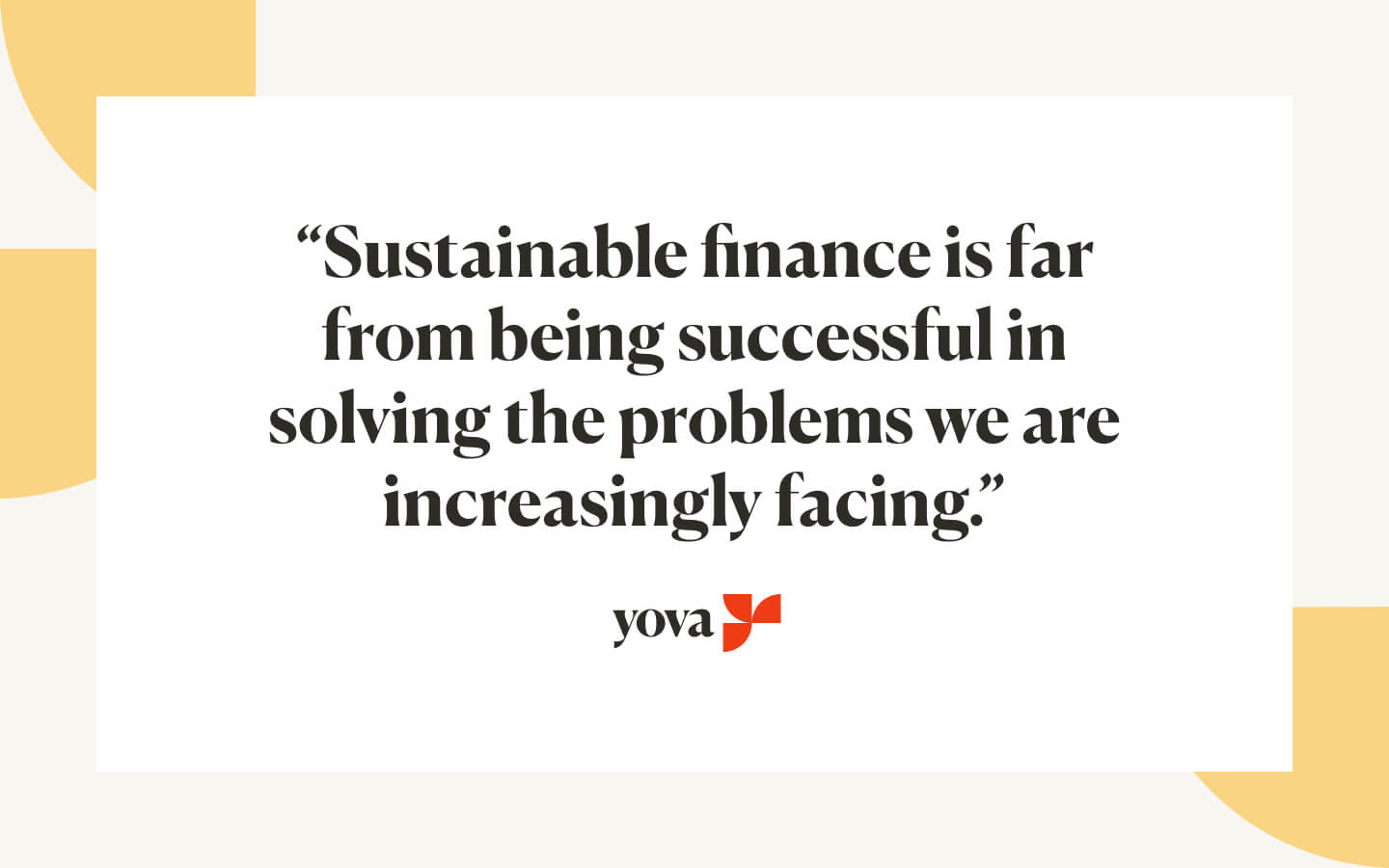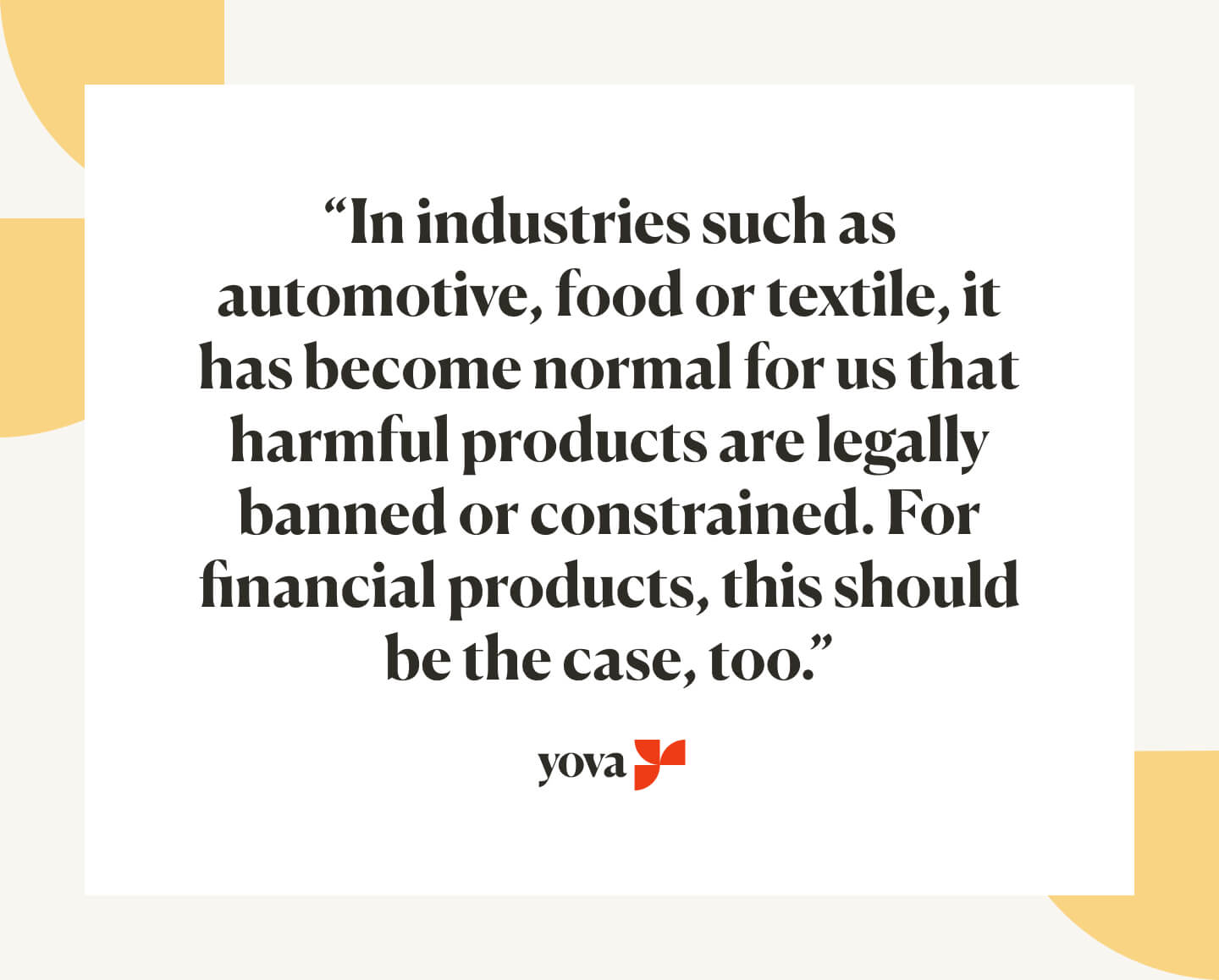The Swiss Federal Council has taken a first important step towards making Switzerland “the” place for sustainable finance. And yet the road ahead is still long. But the goal is within sight if we take five further actions and stick to them without exception.
17 Sustainable Development Goals (SDG) are the centrepiece of the Agenda 2030 to which all UN member states have committed themselves. In order to achieve these goals, all countries have to take national measurements and adjustments to solve the urgent challenges of the world, such as poverty and climate change.
The UN estimates that each year $2.5 trillion are necessary to meet the standards and have a serious impact. The reality is that already now, every year $4 trillion are flowing into sustainable investments. But the SDGs remain unachieved.
This shows very clearly that sustainable finance is far from being successful in solving the problems we are increasingly facing. Why is that so? Because the current system offers room for interpretation and loopholes. The much-vaunted sustainable ETFs are unable to contribute to solving sustainability problems. Innovation and regulation for sustainable finance are necessary to achieve the SDGs. Finally, the Swiss Federal Council has sent out a first important signal.

Swiss regulation to push sustainable finance
In a report published at the end of June, the Federal Council states that Switzerland should become a leading place for sustainable financial services (check out this article on why Switzerland is in a prime position to achieve this). To this end, framework conditions were shaped to improve the competitiveness of the Swiss financial centre and make an effective contribution to sustainability at the same time. In essence, the Swiss Federal Council pursues the following five points:
- Quality of information. All market participants should be provided with better environmental and climate information for financial products and companies. Transparency and the possibility of comparison are crucial. The information must also become better than it has been in the past, with standardised definitions and reportings that clarify what qualifies as a sustainable investment, and what doesn’t.
- Educational standards for finance professionals. In addition, the advice provided by the finance industry shall also be improved. Clients need to know what is happening with their money and how each finance product affects the sustainable goals effectively and efficiently. This requires that financial experts are better trained and pass on their knowledge to their customers.
- Innovation and use of digital technologies. In order to create sustainable change, the use of digital business and analysis models is crucial and shall accompany the everyday life of the financial industry much more than it has done in the past. It is also important to measure the progress on the topic of sustainability with good technology. More innovative paths must be taken.
- Consideration of environmental and climate risks. Sustainability risks are finance risks. And yet, conventional risk assessment does not consider them appropriately. In the future, such have to be assessed and communicated better.
- Exportability and international cooperation. International developments, such as in the European Union, shall be closely followed in order to immediately identify what steps are needed to maintain competitiveness. Switzerland remains committed to the exportability of high-quality financial services. Furthermore, Switzerland supports sustainable financial markets in international initiatives, in relevant international financial market bodies and it shall involve all stakeholders more.
A good first step that needs to get more things moving
These measures are certainly important. And yet, if we are really serious about a financial industry that contributes to achieving sustainability goals, they do not go far enough.

There are five further actions that the Swiss Federal Council should take:
Essential action 1: Measure sustainable finance’s success by its impact
Not every so-called “sustainable investment” has a positive impact on people or the planet. In fact, as researchers from the University of Zurich found out, most of them don’t. To make a significant difference, we must recognise the crucial role of finance in social progress. “Responsible investing” and “ESG investing” go in the right direction, but don’t contribute enough to real-world problems.
As laid out by the researcher Florian Heeb, to actually move the needle sustainable finance must include encouraging change in companies and the larger economy as well as influencing the public agenda setting by signalling values. Furthermore, capital must be provided where the current absence of capital is hindering the business of organisations with a positive impact.
Essential action 2: Make sustainability obligatory in all financial products
In industries such as health care, automotive, food or textile, it has become normal for us that harmful products are legally banned or constrained.
For financial products, this should be the case, too. The impact of all financial products on people and the planet needs to be considered. All of finance must become sustainable finance. Just like all cars are required to be safe to drive.
Essential action 3: Ensure consumer flexibility to switch from existing investments into sustainable investments
A large amount of capital is bound in pension funds, life insurance and other existing investment products. But often consumers cannot see and decide how sustainable their investments are. In the hands of asset managers their money often finances things which the consumers would never agree with.
Regulatory frameworks must empower consumers to decide where exactly their money has an impact. This includes the flexibility to switch providers for long-term investments, especially if they don’t progress on sustainability.
Essential action 4: Constantly improve standards to measure sustainability impact
All market participants should be accountable for their impact. This includes financial players, companies, and the projects they invest in. A closer look at how companies operate is necessary and provides the investors with a better basis for decision making.
Important questions are: What is the “handprint” of each company, i.e. what important issues does the company affect with its products and services? And what is their “footprint” – how is it doing business? Does it take CO2 emissions, gender equality, fair wages and human rights into consideration? Here, too, the measurement must be improved constantly to eliminate current blind spots.
Essential action 5: Strengthen the influence of shareholders
Finally, investing means co-owning. With ownership comes power and responsibility. A century ago, it was normal (and indeed required) that shareholders act on their ownership responsibilities. Nowadays structured products and collective investments distance the investor from her investment.
It has to become easier for shareholders and investors to exercise their rights. In this regard, the European Union is one step ahead. Switzerland must follow the lead of the EU’s Shareholder Rights Directive II.
A more sustainable future will not exist if finance is not part of the equation. But as finance works today, real sustainability impacts is absent. We need stricter regulations and better controls. More transparency and a shift in responsibility. Asset managers should empower investors – and not distance them from their investments. If we’re serious about sustainable finance, then Switzerland has the chance to become a leading place for sustainable financial services and maybe even the Sustainable Finance Valley.


